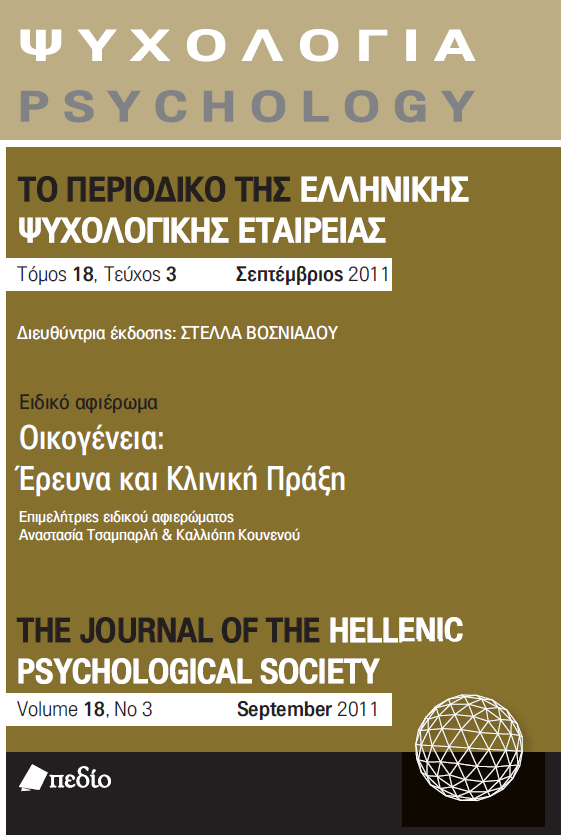Psychotherapeutic interventions in families with children with disabilities: Principles and rationale of the ecosystemic psychodynamic model

Abstract
The purpose of this paper is to present the development of family centered
approaches and intervention models focusing on families with children with
various forms of disability. In addition, the key principles, the rationale and the techniques of the psychodynamic ecosystemic model targeting families with children with particular difficulties or disabilities, will be presented. The present model aims at helping families and children with disabilities at risk for the development of secondary psychosocial disorders. Finally, intervention difficulties, as well as family problems that professionals working with this model are facing will be discussed.
Article Details
- How to Cite
-
Ε. Κουρκούτας Η. (2020). Psychotherapeutic interventions in families with children with disabilities: Principles and rationale of the ecosystemic psychodynamic model. Psychology: The Journal of the Hellenic Psychological Society, 18(3), 255–275. https://doi.org/10.12681/psy_hps.23722
- Issue
- Vol. 18 No. 3 (2011)
- Section
- SPECIAL SECTION

This work is licensed under a Creative Commons Attribution-ShareAlike 4.0 International License.
The journal PSYCHOLOGY adopts a Platinum open-access policy. Submission, processing or publication costs are waived by the Hellenic Psychological Society. Papers published in the journal PSYCHOLOGY are licensed under a 'Creative Commons Attribution-ShareAlike 4.0 International' licence. The authors reserve the copyright of their work and grant the journal the right of its first publication. Third-party licensees are allowed to use the published paper immediately after publication as they wish, provided they retain the defined by the license copyright formalities, regarding the reference to its author(s) and its initial publication in the journal PSYCHOLOGY. Moreover, any adjusted work should be shared under the same reuse rights, so with the same CC license.


